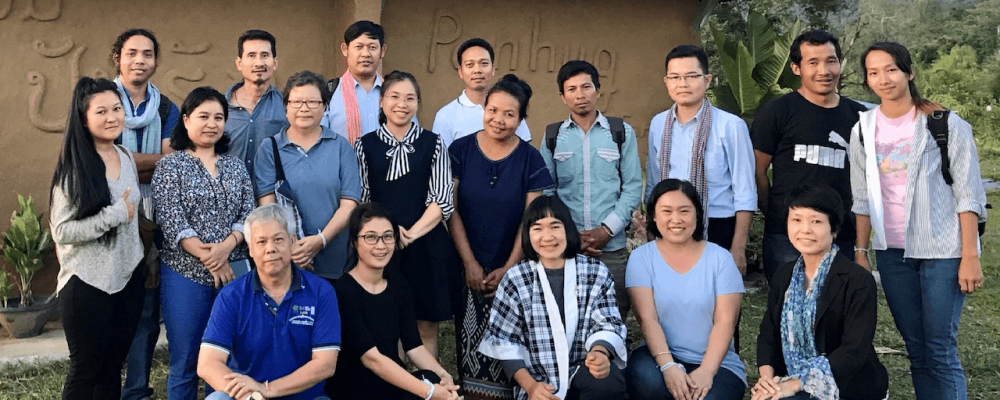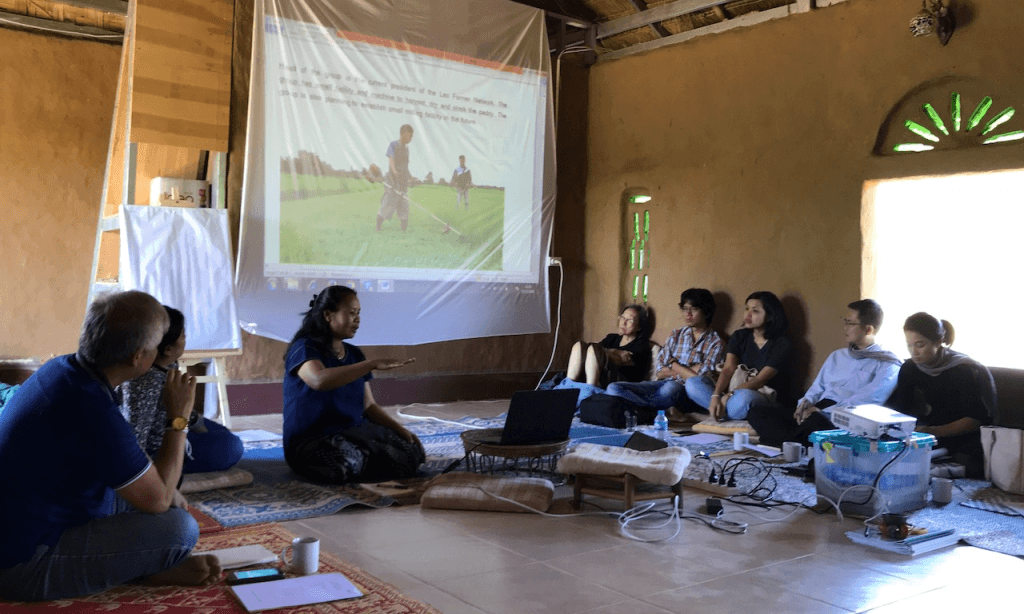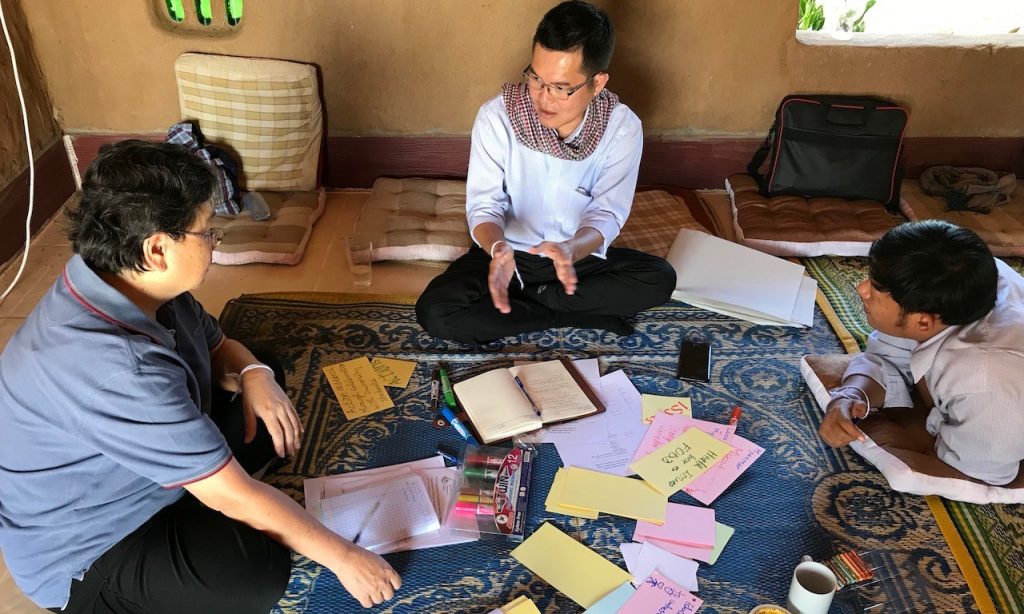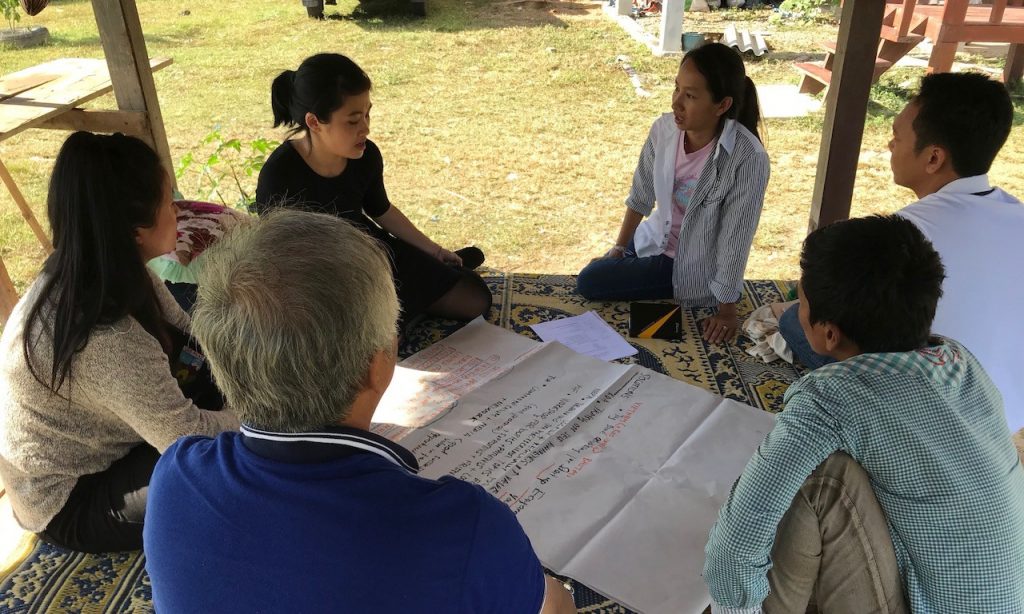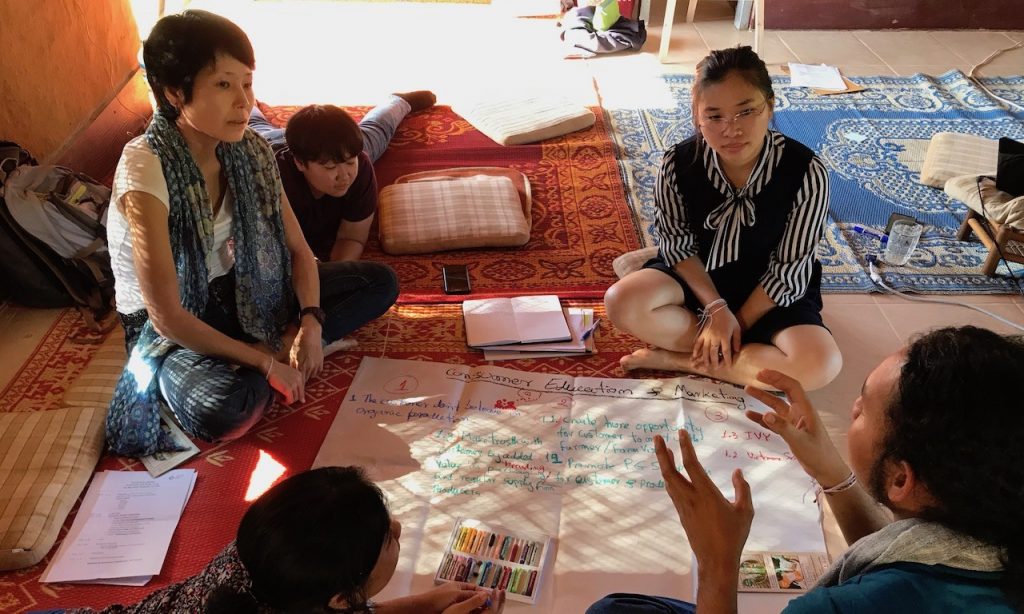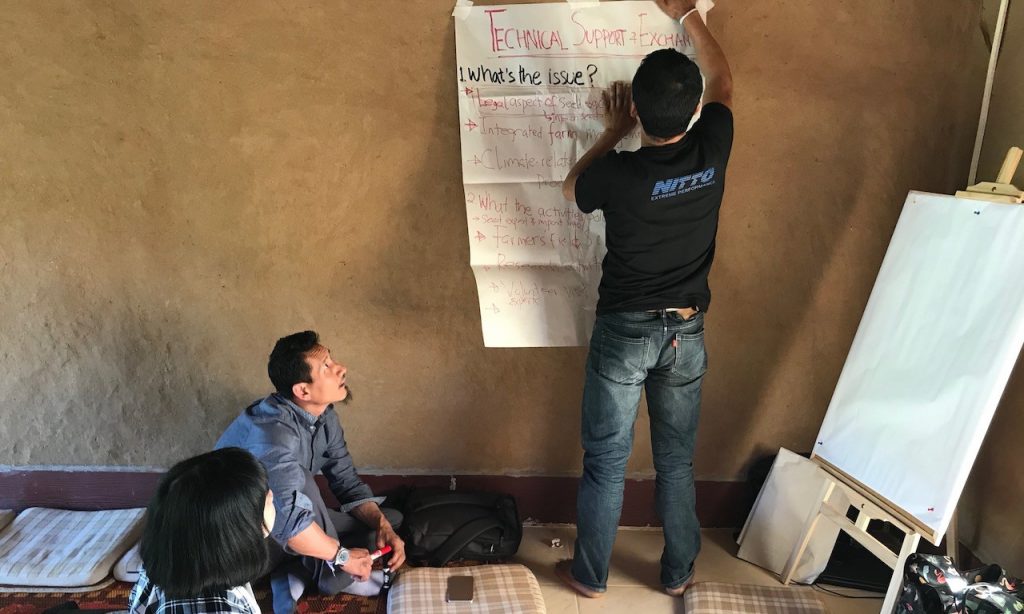TOA Partners Meeting was held on 15 December 2018 at Pan Hag Farm, Vientiane Capital, Lao PDR. There were 23 TOA partners from Bhutan, Cambodia, Myanmar, Lao PDR, Thailand and Vietnam.
Expectation:
- To co-create a self-reliance by pulling our knowledge and resource together;
- To testify the issues in Laos and coming with actions, sharing our knowledge, and sharing our research to really apply for the solutions;
- To make a regional movement.
TOA partners from Bhutan, Cambodia, Myanmar, Lao PDR, Thailand and Vietnam had shared country update about the background and current issue on farming including partner activities. After that there were 4-thematic working group discussion and feedback for the Further Collaboration on:
- What the issues
- What the activities / solutions
- How to collaborate
Capacity Building and Youth
We have youth issues working in farming are limited network and skills applicable, low interest, lack of confidence, no consistency, little policy support, lifestyle-modernism-consumerism, and lacking of the success stories. For the solutions, we would like to have capacity building, training on self-awareness and value on organic agriculture, eco-farming and particular topics, and communication on Medias and Networking. Our regional collaboration, the Health and Food Consumption Topic, examination of blood test and public awareness raising, and these connections to seeds, GMOs, and Health issues.
At the regional level, the collaboration on the common theme on current food system and health, this will involve rural and urban, producer and consumer. We can propose this as the regional research where each country can do case study with selected community. This could be linked with advocacy and action research, other possibilities for our collaboration are:
- Anti GMOs, we can collaborate further campaign and petition for NO GMO.
- Seeds, on seeds restoration, natural seeds, organic seeds production, and seed laws. This is another thing we can collaborate with each other.
- The Google MyMaps, collecting data on young farmers’ location and exchange possibility.
- Farmer day or week, to celebrate and recognize farmers, to dedicated time for farmer. We can propose this to the government.
Action-research and Advocacy
We agreed that food system is the key issue, for example:
- In Myanmar, the fertilizer used and chemical used, farmers got infection from the farming process, and the influence of hybrid seeds.
- In Laos, there was a problem that Banana Company had dump the pesticide into the river and affected to fish and 10 villages along the river.
- The regional issue, including Bhutan, is Climate Change, the effect on Food and economics.
The solution, people need to understand from the “Head, Heart and Hands” so that mean people can understand and take action, such as:
- Organic farming promotion
- Linking with university, student can volunteer at the organization and work on action research related to community issues.
- Climate Change on the scheme of crop insurance (Study/Seminar- TOA network)
- The workshop and sharing on Climate related to agriculture, disaster, technology (AT), and in term of ecological framework.
- Shifting the notion and giving information about fake organic and real organic.
- Research on farm resilience, it could be at different level, for example the smallholder in Laos what is needed- knowledge, cropping system, and practice- to be less and less dependable on the external input. This could be at national level and combine at regional level.
- How to disseminate the result or the finding to the higher/policy level. There is a lot of knowledge on organic farming and those are not implemented. The missing link need to be pin pointed. (Regional action research why organic farming is not adapted wildly)
Technical Support and Exchange
In Bhutan Dilip started organic seeds, especially the tropical seeds that cannot be produced in ASEAN country such as cabbage, broccoli, and coli flower. There are legal procedures including the certification, we have to work for these process, this is not really fit under the technical support but we have it mentioned under this working group for now. There are some areas that need technical support are:
- Integrated farm management and livelihood
- Climate related research on production
For the activities / solution
- Reviews on CEDAC about import and export (for seeds)
- Farmer’s field school, to take the technical support to farmers
- Research activities, participatory research and farmers will be active player
- Volunteer visit at Phaladay, Tsirang (140 km from Thimphu)
Future collaboration
- Bhutan (NOP, CNR, and Tsirang Community can take the lead)
- Tsirang can produce the seeds, therefore TOA partners can be incorporate for this (the seed verity and amount that we might need in the region)
- The list of seeds (the demand for planning and consumption), what is needed, volume and time.
Consumer Education and Marketing
The big challenge is consumers do not believe in organic; this is commons in Vietnam and Cambodia. The solutions for this challenge could be building connection and trust between producer and consumer, and branding, so the activities for these are:
- Farm visit, Promote PGS approach, Learning from Vietnam PGS
- Mentoring system for branding/packaging
Presentations & Document that have supported the discussions are available for download below:
- My Gakidh Village, Bhutan
- Organic Seed Production – Mathana Aphaimool
- Maetha organic – Mathana Aphaimool
- TOA Partners Meeting Report

